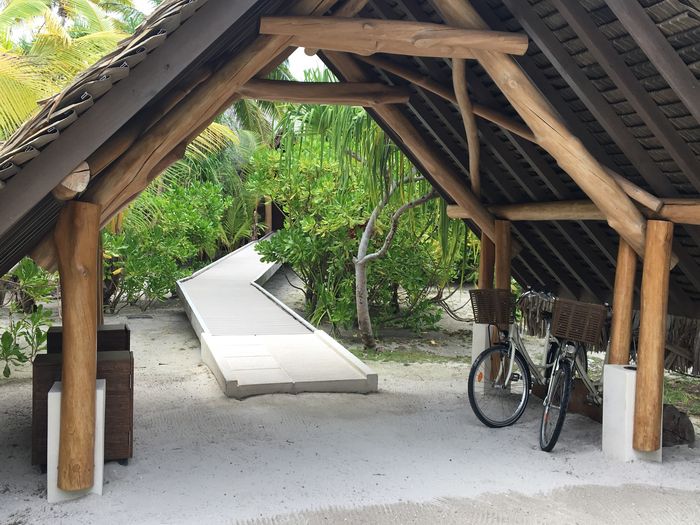Record temperatures of more than 48°C were recorded in Sicily in August. At the same time, in its new Assessment Report on Climate Change the Intergovernmental Panel on Climate Change (IPCC) warned: Extreme weather events are going to happen more frequently. We asked Susanne Becken, Professor of Sustainable Tourism at Griffith University in Queensland, Australia, what global warming means for tourism.
TW: We learn from the new IPCC report that global warming by 1.5 degrees Celsius might no longer be preventable. The internationally agreed objective of preventing two degrees of global warming is also at stake. What impacts is this going to have, especially in Africa, Asia and Latin America?
Susanne Becken: We are already living with climate change: temperature increases, changes in the water cycle, and an increase in extreme events. But these manifest differently in different parts of the world, and with different implications. For example, the IPCC states that the global proportion of category 3 - 5 tropical cyclone occurrence has increased. Many developing countries – and often island states – are in the cyclone zone. These destructive events can undo years of development effort. Increases in extreme precipitation are more likely, as is extreme heat, drought, and wildfires.
TW: What does this mean for the future of tourism in the Global South?
Susanne Becken: Of course, this ultimately affects tourism. A lot of the tourism infrastructure is on the coast where sea level rise is a real issue. A recent study from Thailand showed that out of 51 sandy beach zones there, as many as 23 could disappear under a high emissions climate scenario.
In an operational sense, climatic impacts add to business costs. Businesses will have higher electricity bills for air-conditioning, higher insurance and clean-up costs, and there could be business disruption.
TW: What kind of reorientation or adaptation of tourism products and services may be needed in these regions?
Susanne Becken: Visitor safety is obviously key. So, disaster preparedness is essential. In some places, it may become unviable to operate, e.g., due to extreme heat conditions. Often, climate change is an exacerbating factor on top of other challenges such as freshwater availability, some of which relate to overuse of resources and mismanagement.
There is a wide range of suggestions how to adapt, e.g., by developing less weather dependent products, building resorts in ways that allow for ample shade and natural ventilation. A lot needs to be done in tourism to adapt and be more prepared.
TW: What kind of changes in demand may these regions need to expect?
Susanne Becken: At a destination-scale there could be a downturn in demand, for example due to high temperatures, a rise in infectious diseases, or disaster risk. Climate impacts in countries of origin may affect people’s ability to travel, for example because of reduced prosperity and disposable income.
Given that many countries in the Global South rely on long-haul travel, they are quite exposed to this. I have some scepticism about long-haul travel. ‘Flight shame’ will not go away. Some people will always want to travel, but it might be fewer of them. They might stay longer, however, e.g., combining work and leisure. The pandemic has increased people’s desire to be in nature. That is also an opportunity to develop new products. However, any changes in tourism – especially now in response to the pandemic – must not only foresee future climatic conditions, but they must be sustainable, inclusive, low-carbon, and resilient.
TW: There are wildfires ravaging forestlands in many parts of the world, while other regions struggle with the impacts of torrential rains or cyclones. Is it advisable to invest in costly reconstruction of tourism structures after such disasters?
Susanne Becken: The notion of ‘limits to adaptation’ comes to mind. Now is the time to reconsider whether to rebuilt, or whether a managed retreat is more advisable. The Government of New Zealand is providing some support to diversify and ‘exit’, but there are only a few countries that take a strategic view that tourism in the future might be different and perhaps lower volume.
The IPCC report might catalyse critical thinking about what should be rebuilt, and if so, how. For example, elevated structures to be fit for sea level rise, cyclone strengthened buildings. Hotels should have renewable energy supply and water storage facilities, etc. This of course increases capital costs and investors might not consider projects worthwhile.
Current mainstream hotels are usually built quite cheaply; following a standard formula that is not well adapted to local conditions. Smaller structures and decision making by the community may be promising approaches. This would result in less tourism, but perhaps better tourism. Samoa’s beach fales are a good example. These structures do not cost much, they can easily be built back after a storm, and they are typically owned by locals.
TW: Did the travel restrictions during the Covid-19 crisis entail mitigation effects and what are the “lessons learned”?
Susanne Becken: Of course, emissions have gone down due to reduced travel. But in tourism this reduction is unlikely to be permanent. However, people have also explored their own backyard, and some of this might ‘stick’.
For countries in the South, this means to refocus on closer markets. Many tourism businesses have started to work with schools, or diversified in other ways. Some have developed new partnerships. Creativity will be key, and not being too complacent that tourism will return to the mass model. COVID-19 is a nudge to rethink all aspects of tourism with the much larger challenge ahead of us: climate change.




![[Translate to english:] Frau mit Kind auf FAhrrad](/fileadmin/tourismwatch/_processed_/2/a/csm_Pazifik_0_148d2c7609.png)
